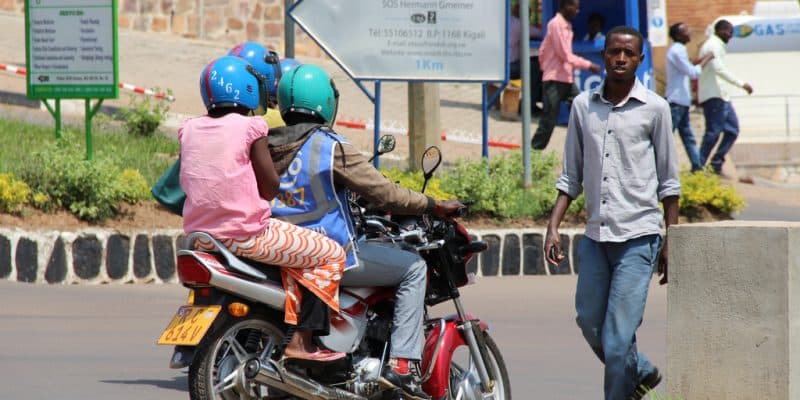Federal authorities in Nigeria have signed an agreement with local Israeli and Japanese companies to introduce electric motorbikes in the capital Abuja by 2023. The partnership, which includes technological solutions, will help reduce air pollution caused by combustion vehicles in the West African country.
With a population of 3.5 million, the city of Abuja in Nigeria faces traffic congestion on a daily basis. It is in this context that the National Agency for Scientific and Technical Infrastructure (NASENI) recently entered into a partnership with local, Israeli and Japanese companies to deploy electric motorbikes in the Nigerian capital.
The two-wheeled machines will be assembled locally thanks to the Nigerian industrial group Peramare Enterprise headed by Eugene Abels and the company Sixai founded by Israeli businessman Ran Poliakine. “It will be a green and environmentally friendly programme that provides people with a safe and cheap means of transport, with technology to ensure that the motorbikes are used only for legal and proper purposes,” promises Michael Freeman, Israel’s ambassador to Nigeria.
Read also-NIGERIA: Oando to introduce electric buses on Lagos roads
For his part, Mohammed Haruna, the Executive Vice President of Naseni, reiterated the Nigerian government’s willingness to invest in green mobility projects. It is in this context that the energy solutions provider Oando signed an agreement with the Lagos Metropolitan Transport Authority (LAMATA) in early 2022. This partnership aims to deploy electric buses in the economic capital by 2025 and will ultimately contribute to the decarbonisation of Nigeria’s transport system.
At the same time, a Lagos-based start-up led by young Nigerian Mustapha Gajibo is expected to begin local production of solar-powered electric buses by September 2022. These cars will have a capacity of 12 seats each and a range of 200 km and will be directly equipped with solar panels and batteries.
Benoit-Ivan Wansi





